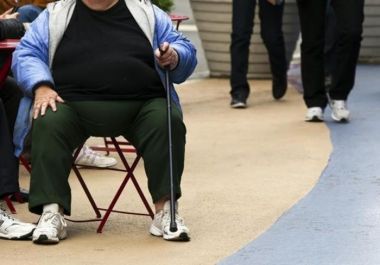America's obesity problem: More Americans now obese than overweight, says study

Obesity is becoming a more serious concern in the United States, with obese Americans slightly outnumbering those who are overweight, a new study revealed.
Some 67.6 million Americans over the age of 25 were classified as obese in 2012, a research from the Washington University School of Medicine in St. Louis showed.
This figure is higher than the 65.2 million Americans in the same age bracket deemed by the researchers as overweight.
When aggregated, the number of Americans who are either obese or overweight was placed at 132.8 million, or two-thirds of the US population, in 2012.
These numbers were reached using data from the Centers for Disease Control and Prevention's National Health and Nutrition Examination Survey, covering the years 2007 up to 2012.
The researchers used height and weight data from the survey to compute a person's body mass index (BMI).
When a person has a BMI from 25 to 29.9, he or she is considered overweight. A BMI of over 30 will categorise a person as obese.
The same study also showed that more American women were obese than overweight. Thirty-seven percent of women who were included in the study were deemed obese, while 30 percent were considered overweight.
Men, however, tended to be more overweight than obese. Forty percent of men who were part of the research were considered overweight, while only 35 percent—a number close to the obesity rate among women—were found to be obese.
African Americans were also found to have the highest rates of obesity, with 57 percent of female black Americans and 39 percent of male black Americans considered to be obese.
Co-author Lin Yang of the Washington University's Prevention Research Center said these findings should trigger some policy changes, including those that promote healthy diets and more physical activities among Americans.
"This is a wake-up call to implement policies and practices designed to combat overweight and obesity," Yang said.











